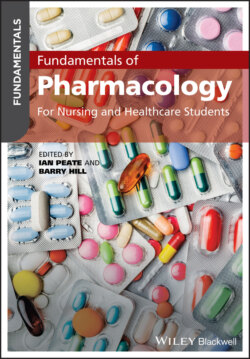Читать книгу Fundamentals of Pharmacology - Группа авторов - Страница 94
Episode of care
ОглавлениеPaul is a 65‐year‐old man who has attended the walk‐in centre with a suspected oral infection. He is allergic to penicillin so is prescribed metronidazole 200 mg twice daily for seven days. However, he smells strongly of alcohol and it states in his previous notes that he has had multiple admissions with alcohol‐related injuries and has a chronic alcohol addiction. You as the nurse query this with the doctor who has prescribed the antibiotics, knowing that the British National Formulary (Joint Formulary Committee, 2019) indicates that alcohol and metronidazole are contraindicated and can cause a severe reaction. The doctor states that she has discussed this with Paul and he is aware that he must refrain from drinking alcohol for the course of the treatment. Consider this from an ethical perspective. While the treatment may be doing ‘good’ (beneficence), it has the potential to do harm (maleficence). It is imperative that health professionals discuss medication plans prior to treatment to ensure that patients are aware of the impact this will have on their daily activities. In Paul's case, it is highly unlikely that he will refrain from alcohol and could either take the metronidazole regardless, risking an adverse reaction, or he may decide to not take the antibiotics and risk further infection and possible sepsis. Key message? Ensure every decision made fully involves the patient and aligns with their own values and lifestyle.
